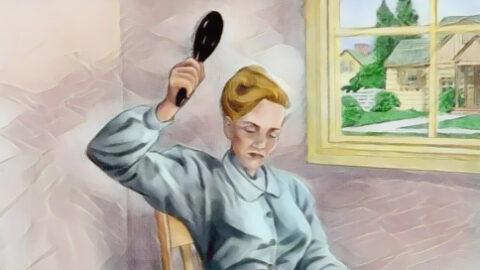Sunday mornings in my youth invariably commenced with the same dignified routine: the resonant peal of the church bells drifting through our tranquil street, sunlight filtering gently through the curtains, and the faint but unmistakable aroma of my mother’s Sunday roast already wafting from the kitchen. Church was not merely a destination; it was an institution, a weekly gathering that set the tempo of our family’s existence.
I recall the sense of occasion as we donned our finest attire, my mother meticulously straightening my collar and my father polishing his shoes until they shone. The walk to church resembled a stately procession, neighbours and friends converging upon the same path, exchanging polite greetings and recounting the week’s events. The church itself, with its lofty arches and radiant stained glass, seemed at once imposing and reassuring—a place where the ordinary was rendered extraordinary.
Within, the pews would gradually fill with familiar faces. There was always a gentle murmur of conversation before the service commenced, the rustle of hymn books, and the occasional suppressed giggle from children attempting to remain composed. I would sit between my parents, legs swinging, striving to remain still as the organist began the opening chords. The sunlight would illuminate the motes of dust in the air, lending the entire scene a magical quality.
My mother, Margaret, was invariably the heart of these gatherings. She possessed a remarkable ability to make all feel welcome, whether it was a family attending for the first time or an elderly neighbour requiring assistance up the steps. She would squeeze my hand during the prayers, her voice unwavering and clear during the hymns. I was proud of her, even if she did have a penchant for recounting my childhood escapades at the most inopportune moments.
One Sunday, after the service, the congregation spilled into the churchyard, the sun warming the ancient stone walls. The adults formed small groups, exchanging news, whilst we children darted amongst the gravestones, inventing games and playing tag. It was on such days that my mother’s stories would emerge—tales of my childhood which she seemed to delight in sharing with any willing listener.
At a family gathering not long ago, she managed to embarrass me once more. We were celebrating a wedding anniversary in my in-laws’ garden, the air filled with laughter and the gentle clinking of glasses. A small boy in bright red shorts caught her attention, and before I could intervene, she was regaling the assembled company with tales of how much he reminded her of me at that age.
“Peter would run up to me and Joan and request a smacked bottom! Do you recall, Joan?” she declared, her eyes sparkling with mischief. I attempted to silence her, but Aunt Joan merely nodded, and the entire table leaned in, eager for further details. My wife, Linda, offered me a knowing smile, fully aware of my dread of these stories.
Mother continued, describing how I would run between her and Aunt Joan, laughing as they indulged my childish requests. My brother-in-law, Roger, could not resist a jest about whether this occurred when I was five or twenty-five, and the laughter around the table grew ever louder. I wished to vanish, but Linda held my hand, ensuring I remained in my seat.
(pause) The teasing did not end there. Mother recalled another memory—me, at six, requesting a smack for uttering a rude word, only to fall silent when she inquired what I had said. The ladies at the table joined in, offering their own mock threats of discipline, and even my younger cousins joined the chorus of laughter. I attempted to protest, but it was futile; the story had acquired a life of its own.
Yet it was the tale of my childhood “smacked bottoms” that always seemed to elicit the most amusement, and perhaps, in the gentle, teasing manner of mothers everywhere, my mother relished its telling. In those days, a smacked bottom was less a punishment than a punctuation mark in the narrative of growing up—a brief, stinging reminder to mind one’s manners, but always delivered with more affection than severity. (short pause) I can still recall the sensation: the anticipation, the nervous laughter, the way I would look up at Mother or Aunt Joan, half-hopeful, half-apprehensive, as if I were part of a game whose rules I only partially understood.
The ritual was almost theatrical, and in the retelling, Mother would embellish the details for her audience. “He would come running up, all cheek and dimples, and say, ‘Mummy, I have been naughty, I require a smacked bottom!’” she would say, her voice lilting with affection. Aunt Joan would add, “He was the only child I ever knew who requested his own discipline!” The ladies would laugh, their voices mingling with the clink of teacups and the rustle of summer dresses, and I would feel my cheeks flush with embarrassment, even as I smiled at the recollection.
In truth, those moments were never harsh. There was a certain ceremony to it, a gentle tap over my shorts, more symbolic than anything else. The adults would exchange knowing glances, and I would scamper off, my dignity bruised but my spirits undampened. It was a different era, when discipline was as much about reassurance as correction, and a child’s mischief was met with a firm hand and a loving heart.
Mother, ever resourceful, would sometimes use my eagerness for a smacked bottom as a means of persuasion—promising one at bedtime if I behaved or finished my vegetables. Most nights, she said, I would be so sleepy by bedtime that I had forgotten all about it. The adults found this most amusing, and Aunt Joan even suggested to Linda that she employ the same tactic should I ever refuse my greens.
The laughter and teasing continued throughout the afternoon. Some of the ladies threatened to administer a “good smacked bottom” themselves, and my cousins made cheeky remarks that left me blushing. Even as an adult, I could not escape the shadow of my childhood antics, especially with Mother present to remind everyone.
Yet church was not solely a place for embarrassment or family stories. It was where I learned about kindness, community, and the importance of caring for one another. I remember how the congregation would rally around anyone in need—organising meals for a sick neighbour, collecting donations for a family in distress, or simply offering a sympathetic ear. Those lessons remained with me long after I had outgrown my Sunday best.
There were other memories, too—such as the time I attended a friend’s birthday party at the church hall. The room was filled with balloons and laughter, the tables laden with sandwiches and jelly. After the cake was cut and the candles extinguished, one of the mothers jokingly asked who desired cake and who desired a smacked bottom. Ever the imp, I requested both, and the room erupted in laughter as she played along, giving me a gentle smack over my shorts before handing me a slice of cake.
That moment, trivial as it was, became the talk of the party. The other children giggled and teased, and for a brief moment, I was the centre of attention. I never told Mother about it, but in retrospect, I realise how much those playful moments shaped my sense of humour and my understanding of family.
As I grew older, church became less about the rituals and more about the memories—of my mother’s laughter, the warmth of the community, and the small acts of kindness that defined our Sundays. Even now, when I pass an old church or hear the sound of bells, I am transported back to those mornings, sitting in the pews with my family, sunlight streaming through the stained glass.
The day of that family gathering concluded on a happier note than I had anticipated. Linda, ever the good sport, teased me about my embarrassment all the way home. When we arrived, she embraced me and whispered that I had been a very naughty boy for the things I had muttered in the car. With a playful glint in her eye, she sent me to our room, promising a little “discipline” of her own.
That evening, for the first time, we shared a new kind of intimacy—one rooted in trust, laughter, and the memories of childhood. It was a reminder that the stories we carry from our past can shape our present in unexpected ways, drawing us closer to those we love.
Now, whenever I reflect upon those Sunday mornings—the church bells, the laughter, the gentle teasing—I realise how fortunate I was to grow up surrounded by family, community, and the sort of love that endures, even when it causes one a little embarrassment. Those memories, both mortifying and magical, are the foundation of who I am today.
































